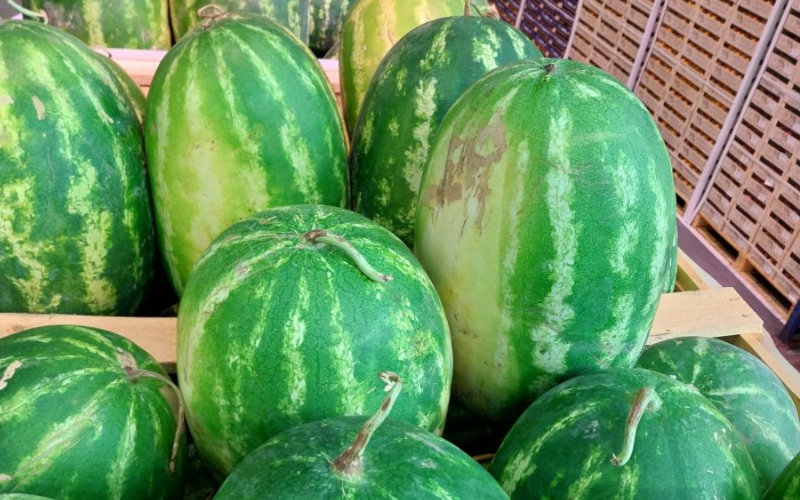Drought-Stricken Morocco Faces Water Crisis as Watermelon Farming Continues in Zagora

The continued cultivation of red watermelon in Zagora increases the risk of water stress in the region, in this context of severe drought affecting the kingdom.
The cultivation of watermelon, which requires large quantities of water, threatens the permanent availability of water resources in the Zagora region. By continuing this agricultural activity and exporting this fruit, not only are the farmers depleting the groundwater, but they are also exporting the water from the region, explains Abdelkader Aït Salah, an environmental actor in the region, to Hespress, adding that this situation "leads to a plundering of local water resources, thus increasing the pressure on water scarcity in the region".
"In the context of the worsening of climate change and the recurrence of drought waves, the cultivation of red watermelon would be the coup de grace for the water resources in Zagora," said the expert, arguing that the excessive exploitation of groundwater "would make the region more vulnerable to the devastating effects of drought in the future, which could lead to severe water crises threatening the lives of the inhabitants and their economic activities".
In the same vein, Halima Assli stated that "the continuation of the cultivation of red watermelon would lead to a slow death of the remaining water resources in the region," insisting on the urgent need to resolve this issue "without delay". "Radical and urgent measures must be taken to stop this water hemorrhage before it is too late, because the future of this region, its oases and the security of its water resources are at stake," she indicated.
Aware of the danger that the cultivation of red watermelon poses to the water table, the regional authorities had decided to reduce the area dedicated to this crop to one hectare per farmer. This measure is still in effect and any offender will be subject to sanctions, warned an official from the Regional Directorate of the Ministry of Agriculture in Drâa-Tafilalet, announcing "incentives to encourage farmers to switch to less water-intensive crops, and to adopt modern irrigation methods and advanced agricultural techniques".
Related Articles
-

Quebec’s International Student Crisis: UQAM Faces 39% Drop as Government Policies Spark Global Concern
5 September 2025
-

Surge in UK Train Phone Thefts: One Device Stolen Every 44 Minutes, Many Ending Up in Morocco
5 September 2025
-

French Retirees Abroad Face Digital Revolution: Biometric App Replaces Traditional Proof of Life
5 September 2025
-

Fake Colonel Arrested: Massive Fraud Scheme Uncovered in Morocco’s Southeast
5 September 2025
-

Royal Rift: Macron and Morocco’s King Clash Over Pegasus Spyware Scandal
5 September 2025